detail profile eijir c5 8d t c5 8dno
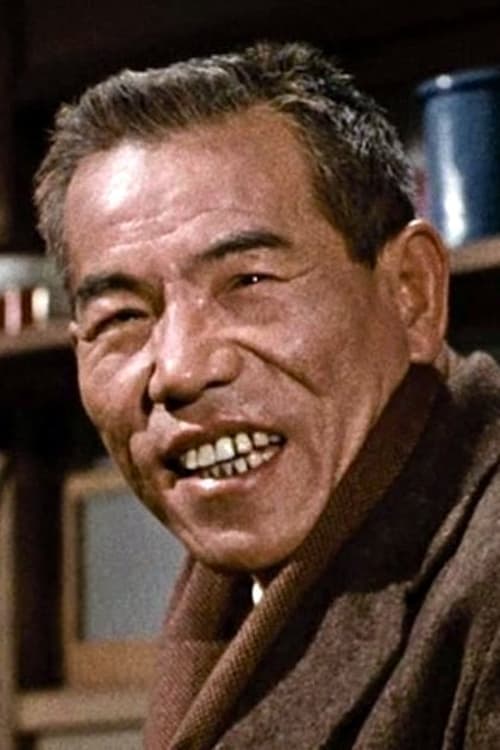
Eijirō Tōno
Tōno Eijirō
atau dikenal sebagai
Riwayat Hidup
Eijirō Tōno (東野英治郎 Tōno Eijirō, 17 September 1907 – 8 September 1994) was a Japanese actor who, in a career lasting more than 50 years, appeared in over 400 television shows, nearly 250 films and numerous stage productions.
He is best known in the West for his roles in films by Akira Kurosawa, such as Seven Samurai (1954) and Yojimbo (1961), and films by Yasujirō Ozu, such as Tokyo Story (1953) and An Autumn Afternoon (1962).
He also appeared in Kill! by Kihachi Okamoto and Tora! Tora! Tora!, a depiction of the Japanese attack on Pearl Harbor.
His final film was Juzo Itami's A-ge-man (Tales of a Golden Geisha) in 1990.
Tōno also starred as the title character in the long-running television jidaigeki series Mito Kōmon from 1969 to 1983.
In the early years of his career he acted under the name of Katsuji Honjo (本庄克二).
Info Pribadi
Peran Yang Di Mainkan Eijirō Tōno
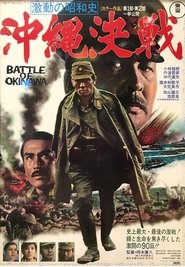 The Americans are swiftly closing on...
The Americans are swiftly closing on...The Battle of Okinawa 1971
The Americans are swiftly closing on Okinawa, an island just south of the Japanese mainland. The Imperial command sends top generals and several army divisions to defend it at all costs. The mission quickly degenerates as vital resources and troops are diverted to other islands. After a civilian evacuation ends in tragedy most of non-combatants are forced to remain on the island. Many convert to soldier status. Tokyo sends mixed messages that squander time and resources, as when they order the defenders to build an airstrip for aircraft that never come. The truth soon becomes obvious: the high command decides that the island cannot be held and effectively abandons the Okinawan defenders. When the Americans land many troops are deployed in the wrong places. As the slaughter mounts, a suicidal attitude takes hold. Okinawa becomes a death trap, for civilian volunteers and non-combatants as well.
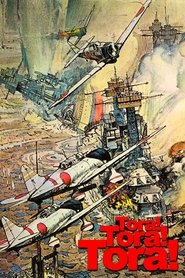 In the summer of 1941 the United...
In the summer of 1941 the United...Tora! Tora! Tora! 1970
In the summer of 1941, the United States and Japan seem on the brink of war after constant embargos and failed diplomacy come to no end. "Tora! Tora! Tora!", named after the code words used by the lead Japanese pilot to indicate they had surprised the Americans, covers the days leading up to the attack on Pearl Harbor, which plunged America into the Second World War.
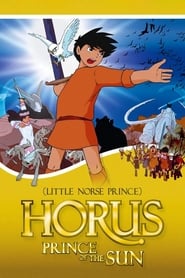 Young Horus lives in a mythical...
Young Horus lives in a mythical...Horus: Prince of the Sun 1968
Young Horus lives in a mythical Scandinavia of the Iron Age. Recovering the stolen Sword of the Sun from a rock giant, he learns he must travel to the lands of his ancestors, encountering the beautiful but enigmatic Hilda as his journey leads to a series of adventures.
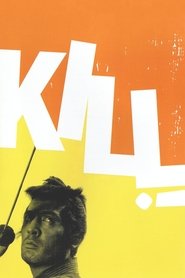 A pair of downontheirluck swordsmen arrive...
A pair of downontheirluck swordsmen arrive...Kill! 1968
A pair of down-on-their-luck swordsmen arrive in a dusty, windblown town, where they become involved in a local clan dispute. One, previously a farmer, longs to become a noble samurai. The other, a former samurai haunted by his past, prefers living anonymously with gangsters. But when both men discover the wrongdoings of the nefarious clan leader, they side with a band of rebels who are under siege at a remote mountain cabin.
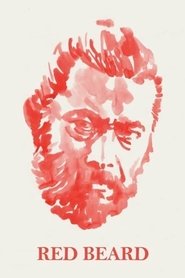 Aspiring to an easy job as...
Aspiring to an easy job as...Red Beard 1965
Aspiring to an easy job as personal physician to a wealthy family, Noboru Yasumoto is disappointed when his first post after medical school takes him to a small country clinic under the gruff doctor Red Beard. Yasumoto rebels in numerous ways, but Red Beard proves a wise and patient teacher. He gradually introduces his student to the unglamorous side of the profession, ultimately assigning him to care for a prostitute rescued from a local brothel.
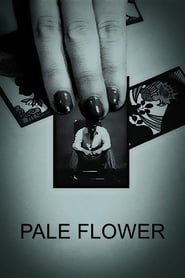 A gangster gets released from prison...
A gangster gets released from prison...Pale Flower 1964
A gangster gets released from prison and has to cope with the recent shifts of power between the gangs, while taking care of a thrill-seeking young woman, who got in bad company while gambling.
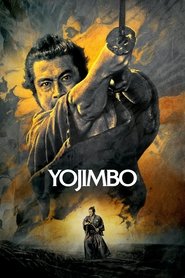 A nameless ronin or samurai with...
A nameless ronin or samurai with...Yojimbo 1961
A nameless ronin, or samurai with no master, enters a small village in feudal Japan where two rival businessmen are struggling for control of the local gambling trade. Taking the name Sanjuro Kuwabatake, the ronin convinces both silk merchant Tazaemon and sake merchant Tokuemon to hire him as a personal bodyguard, then artfully sets in motion a full-scale gang war between the two ambitious and unscrupulous men.
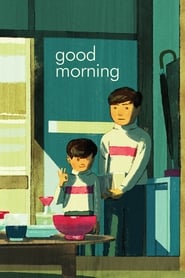 A lighthearted take on director Yasujiro...
A lighthearted take on director Yasujiro...Good Morning 1959
A lighthearted take on director Yasujiro Ozu’s perennial theme of the challenges of intergenerational relationships, Good Morning tells the story of two young boys who stop speaking in protest after their parents refuse to buy a television set. Ozu weaves a wealth of subtle gags through a family portrait as rich as those of his dramatic films, mocking the foibles of the adult world through the eyes of his child protagonists. Shot in stunning color and set in a suburb of Tokyo where housewives gossip about the neighbors’ new washing machine and unemployed husbands look for work as door-to-door salesmen, this charming comedy refashions Ozu’s own silent classic I Was Born, But . . . to gently satirize consumerism in postwar Japan.
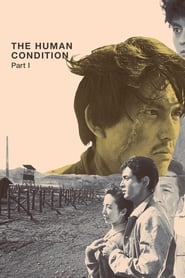 After handing in a report on...
After handing in a report on...The Human Condition I: No Greater Love 1959
After handing in a report on the treatment of Chinese colonial labor, Kaji is offered the post of labor chief at a large mining operation in Manchuria, which also grants him exemption from military service. He accepts, and moves to Manchuria with his newly-wed wife Michiko, but when he tries to put his ideas of more humane treatment into practice, he finds himself at odds with scheming officials, cruel foremen, and the military police.
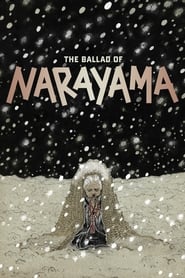 In Kabuki style the film tells...
In Kabuki style the film tells...The Ballad of Narayama 1958
In Kabuki style, the film tells the story of a remote mountain village where the scarcity of food leads to a voluntary but socially-enforced policy in which relatives carry 70-year-old family members up Narayama mountain to die. Granny Orin is approaching 70, content to embrace her fate. Her widowed son Tatsuhei cannot bear losing his mother, even as she arranges his marriage to a widow his age. Her grandson Kesa, who's girlfriend is pregnant, is selfishly happy to see Orin die. Around them, a family of thieves are dealt with severely, and an old man, past 70, whose son has cast him out, scrounges for food. Will Orin's loving and accepting spirit teach and ennoble her family?
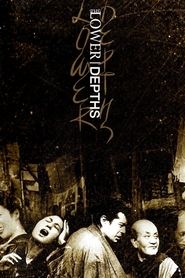 Residents of a rundown boardinghouse in 19...
Residents of a rundown boardinghouse in 19...The Lower Depths 1957
Residents of a rundown boardinghouse in 19th-century Japan, including a mysterious old man and an aging actor, get drawn into a love triangle that turns violent. When amoral thief Sutekichi breaks off his affair with landlady Osugi to romance her younger sister, Okayo, Osugi extracts her revenge by revealing her infidelity to her jealous husband.
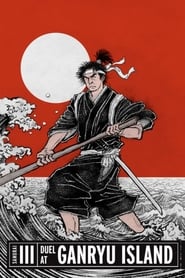 A humble and simple Takezo abandons...
A humble and simple Takezo abandons...Samurai III: Duel at Ganryu Island 1956
A humble and simple Takezo abandons his life as a knight errant. He's sought as a teacher and vassal by Shogun, Japan's most powerful clan leader. He's also challenged to fight by the supremely confident and skillful Sasaki Kojiro. Takezo agrees to fight Kojiro in a year's time but rejects Shogun's patronage, choosing instead to live on the edge of a village, raising vegetables. He's followed there by Otsu and later by Akemi, both in love with him. The year ends as Takezo assists the villagers against a band of brigands. He seeks Otsu's forgiveness and accepts her love, then sets off across the water to Ganryu Island for his final contest.
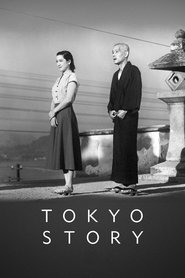 The elderly Shukishi and his wife...
The elderly Shukishi and his wife...Tokyo Story 1953
The elderly Shukishi and his wife, Tomi, take the long journey from their small seaside village to visit their adult children in Tokyo. Their elder son, Koichi, a doctor, and their daughter, Shige, a hairdresser, don't have much time to spend with their aged parents, and so it falls to Noriko, the widow of their younger son who was killed in the war, to keep her in-laws company.
 A bad day gets worse for...
A bad day gets worse for...Stray Dog 1949
A bad day gets worse for young detective Murakami when a pickpocket steals his gun on a hot, crowded bus. Desperate to right the wrong, he goes undercover, scavenging Tokyo’s sweltering streets for the stray dog whose desperation has led him to a life of crime. With each step, cop and criminal’s lives become more intertwined and the investigation becomes an examination of Murakami’s own dark side.
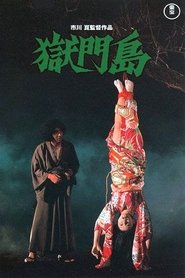 A scruffy detective investigates the murders...
A scruffy detective investigates the murders...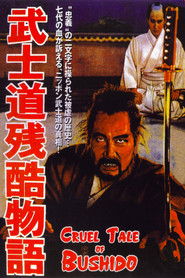 After a salarymans fiance attempts suicide...
After a salarymans fiance attempts suicide...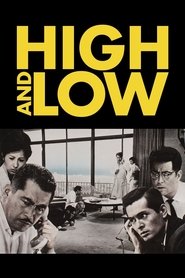 In the midst of an attempt...
In the midst of an attempt...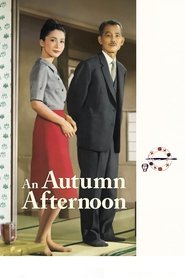 Shuhei Hirayama is a widower with...
Shuhei Hirayama is a widower with...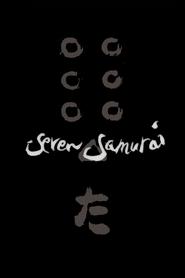 A samurai answers a villages request...
A samurai answers a villages request...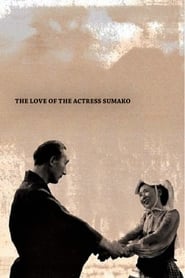 The stage director Shimamura who is...
The stage director Shimamura who is...